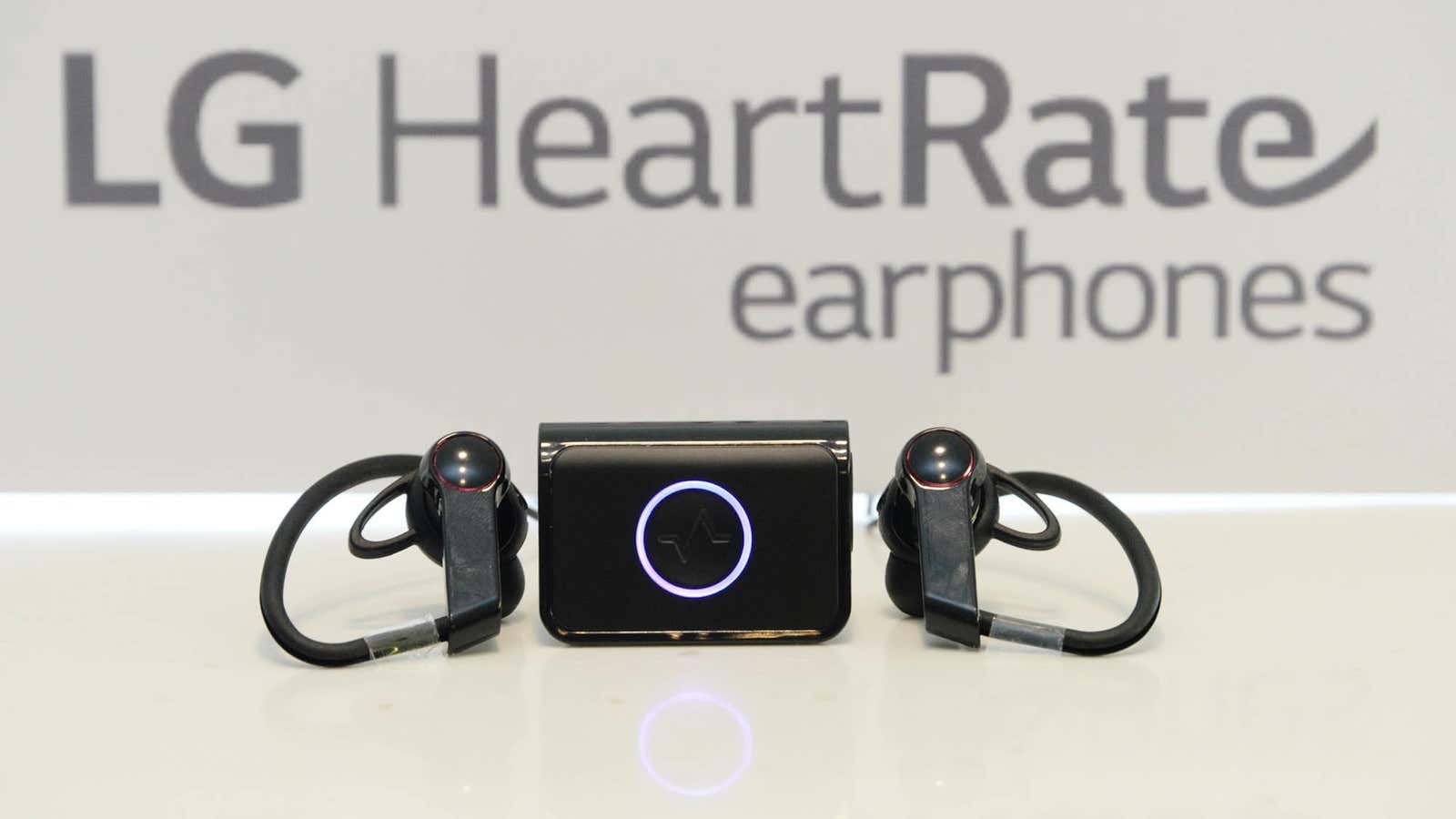In early May, news started spreading about a new Apple product: Earbuds that could monitor heart rate and blood pressure. While that turned out to be a rumor, apparently started by a non-Apple employee, there’s a simple reason for why most of the internet believed it: Smart earbuds are almost certainly going to happen.
Apple has the proper patents filed; it has recently hired some of the best brains in the biometric sensor business; and some have speculated that the planned purchase of Beats Electronics, with its trendy headphones, is a step toward an ear-focused wearable computer. Yesterday, LG beat Apple to the punch when it launched a new set of headphones that use the same technology.
This all makes sense—the inner ear is a great place to pick up vital signs, arguably better than the wrist, where most fitness trackers are currently worn. A band on the wrist will be affected by your movement (and the embedded sensors are bulky to boot). A well-fitted earbud will stay in place as you run and jump, making readings of heart rate, blood pressure, temperature, and pulse oximetry more accurate.
When paired with a wrist-worn fitness tracker (LG simultaneously announced the release of their own, called Lifeband Touch), in-ear monitors will allow the convenience of heart rate data without the added bulk seen on products like the Basis wristband. Of course, this means that users will have to pay for two fitness tracking devices. LG’s headphones and band will cost $180 and $150, respectively—and $330 is a high hurdle to jump in the world of $99-$200 fitness bands.
Even those who don’t bother with fitness trackers might have some use for smart earbuds that do more than just monitor your vitals. They could hypothetically use your heart rate to estimate your mood, for example, which would open the door for improved mood-based music curation. Even the non-quantified athlete might be willing to pay for music tailored to match their pace and exertion.
As we’ve said before, it’s possible that the traditional fitness tracking band will soon be considered a frivolous accessory. If screens and keyboards give way to voice-controlled computing, it could very well be that our wellness monitoring—and everyday portable computing—could be done via a single set of in-ear buds.
